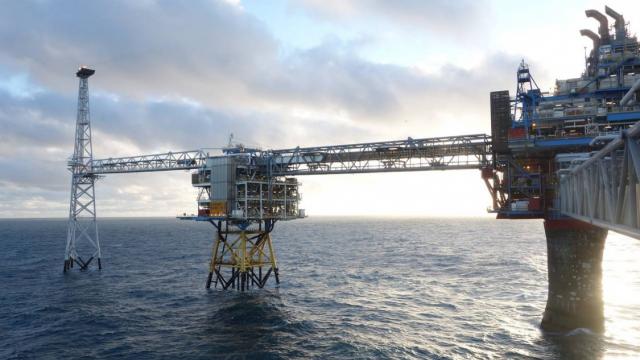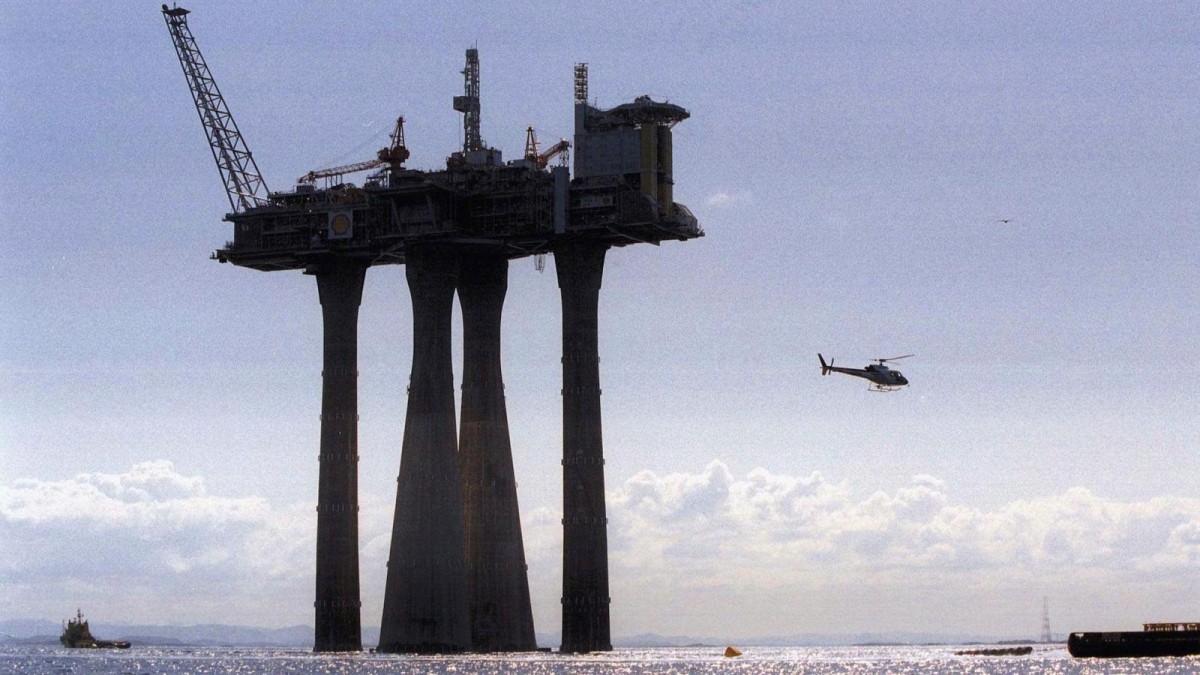
Petro-state Norway's recent decision to divest money from the oil industry “will send shock waves” through the oil industry, according to environmentalists at 350.org. Bloomberg meanwhile asserts “Big Oil dodged the bullet.” The reactions are not totally contradictory, as Europe's largest oil producer is effectively admitting the oil game is up – but it wants to play to the final whistle.
What are Norway's plans?
Norway's Sovereign Wealth Fund last month published a white paper about divesting from upstream oil. Based on earnings from North Sea oil and gas, Norway has the world's biggest sovereign fund with assets of $1 trillion, managed by its central bank.
In late 2016, the country held $5.36 billion in Shell, $3 billion in ExxonMobil and over $2 billion each in Chevron, Total and BP. These and other oil majors will not be affected, directly at least.
The proposal now is to pull out of its upstream investments, that is, companies that solely extract from and explore for new oil fields. The Norwegian government will make its final decision on the proposal in 2020.
Responding to Norway's plan, Yossi Cadan, senior divestment campaigner at 350.org, said in a statement: “The decision should sound like a red alert for private banks and investors whose oil and gas assets are becoming increasingly risky and morally untenable. However, fossil fuel giants like Exxon and Shell will remain in the fund’s investment portfolio. This divestment proposal is a step in the right direction, but it doesn’t go far enough to help avoid climate chaos.”
Norway is removing capital from some corporations involved in fracking and tar sands, including U.S. firm Chesapeake, Canadian firms Canadian Natural Resources and Encana, and Britain's Igas. But other majors with some oil sands business will continue, such as Suncor and Husky Energy.
Overall, the plan divests $7.5 billion from oil producers. It is effectively removing Norway's oil-earned dollars from oil futures. But this is not a response to the accelerating climate emergency.
“The oil industry will be an important and major industry in Norway for many years to come. The state’s revenues from the continental shelf are, as a general rule, a consequence of the profitability of exploration and production activities,” the government announced in a statement with the proposal.
“Therefore, this measure is about diversification. Exploration and production companies will be phased out from the Fund gradually over time and plans will be prepared in consultation with Norges Bank, after the Storting’s [Parliament] deliberation of the white paper.”
Oil is an unsafe bet, even for oil producers
Norway's Finance Minister Siv Jensen added that “the objective is to reduce the vulnerability of our common wealth to a permanent oil price decline. Hence, it is more accurate to sell companies which explore and produce oil and gas, rather than selling a broadly diversified energy sector.”
Despite Norway's decision being prompted by financial reasons, it still represents positive news in a world where serious action is needed to tackle the climate crisis.
In 2014, the Rockefeller Foundation – which was itself created by oil earnings – announced it would withdraw its $870 million fortune out of the very industry that made it money. In 2018, 350.org estimated that, in total, over $6 trillion had been divested globally from big oil.
Norway's decision will bolster this growing worldwide movement taking money out of oil, which includes insurance companies, local authorities, religious organizations, universities and pension funds among others.
But looking specifically at Norway's divestment proposal, the Sovereign Wealth Fund could have gone far further. The white paper is based on advice from Norway's central bank, which in 2017 called for full oil divestment. Norway will only make its final decision next year, reflecting the slowed down priorities of big oil-dominated annual climate negotiations.
Norway's decision also does nothing to limit the country's own industry. In fact by removing support from the small companies that source and extract oil, it is arguably taking measures to make sure there is less oil globally available – and therefore less chance of its own oil becoming stranded assets that can't be sold due to future climate negotiations. Norway is also moving to extend its Arctic drilling.
To repeat the government's own words: “for years to come” the Norwegian government wants oil to be an “important and major industry”. The Norwegian government's decision also has mixed ramifications for oil majors.
Beware greenwash capitalism
Norway's Finance Minister said that Norway will retain investments in the oil majors, arguing “it is anticipated that almost all of the growth in listed renewable energy over the next decade will be driven by companies that do not have renewable energy as their main business.”
This thinking cuts to the heart of Norway's current direction and has a strong greenwash element for two reasons. Firstly, Statoil, the national oil company, recently rebranded itself Equinor and has diversified into wind and solar energy. But its main business is oil, including Arctic oil. So Norway is sending the clear message that it is okay to invest in oil – a fossil fuel that is destroying the planet's future – as long as businesses have some renewables element on the side.
Instead, Norway and the world must recognize that big fossil fuel companies caused the climate crisis, and therefore the world should take the oil wealth back through litigation and reparations and distribute it to pay for a global Green New Deal.
Secondly, Norway's sovereign fund has been a genuine leader when it comes to ethical investments. Examples include taking money out of tobacco, genocidal wars and weapons that kill indiscriminatingly. But this relative ethics says more about the ruthless amoral nature of other big investors.
In 2016, Norway showed more relative investing leadership by promising to stop funding coal. But as we saw earlier this year – and which is often the case with capitalist, profit-making investments – Norway found loopholes to still invest in some of the world's biggest coal operations.
Looking at the positive impact of Norway's divestment decision, it will certainly put added pressure on big oil to step up its moves into renewables. In practical terms, this is not a bad thing. But from a political perspective the plan also has broader ramifications.
Lobbying by oil majors drives governments to scrap renewable projects nationally and curtail international carbon-cutting agreements. As the divestment movement pushes companies to get more deeply into renewable energy, it is worth asking how much they will be able to lobby for a status quo that they are leaving.
What is clear to everyone from the escalating climate crisis is that we may be facing the beginning of the end of life, and certainly civilization, as we know it. Even petro-states and big oil producers and investors are starting to understand that to alter our fate requires facing up to the beginning of the end of their business model.














